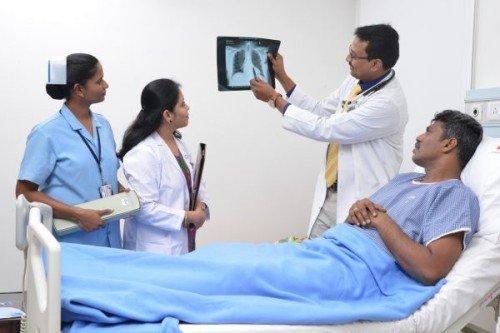
India is a country with a rich history of medicine that dates back thousands of years. From the ancient practice of Ayurveda to modern medical advancements, India has always been at the forefront of medical innovation.
Medical innovation refers to the development of new treatments, technologies, and therapies that improve healthcare and save lives. Medical innovation is essential for addressing global health challenges, including the rising burden of chronic diseases, infectious diseases, and emerging health threats.
In recent years, medical innovation has led to significant advancements in healthcare. One area where there have been significant breakthroughs is in precision medicine. Precision medicine involves using a patient's genetic and molecular information to develop personalized treatments that are more effective and have fewer side effects.
Other areas of medical innovation include regenerative medicine, which uses stem cells and other biological materials to repair and replace damaged tissues and organs, and digital health technologies, such as telemedicine and mobile health apps, which make healthcare more accessible and efficient.
Medical innovation has also led to advancements in medical devices, such as implantable devices for heart disease and joint replacements, and new diagnostic tools, such as advanced imaging technologies and genetic testing.
Innovation in healthcare is not without its challenges, including regulatory hurdles, funding constraints, and ethical considerations. However, continued investment in medical research and development is essential for advancing healthcare and improving health outcomes for people around the world.
Overall, medical innovation has the potential to transform healthcare and save countless lives. With continued investment in research and development, we can expect to see even more breakthroughs in the coming years.
India has made significant strides in medical innovation in recent years, particularly in the development of affordable medical technologies and pharmaceuticals. The country has a robust ecosystem for medical research and development, including world-class research institutions, pharmaceutical companies, and startups.
One area where India has particularly excelled is in the production of generic drugs. India is the world's largest producer of generic drugs, accounting for over 20% of global exports. This has made essential medicines more accessible and affordable to people around the world, particularly in developing countries.
India is also home to several leading medical technology companies, particularly in the areas of diagnostic imaging, surgical instruments, and orthopedic devices. These companies have developed innovative products that have improved the quality of healthcare and saved lives.
These technologies have made healthcare more accessible and efficient, particularly in rural areas where access to healthcare is limited.
Despite these advancements, India still faces significant challenges in healthcare, including a shortage of healthcare professionals and inadequate healthcare infrastructure, particularly in rural areas. However, the Indian government has taken steps to address these challenges through initiatives such as the National Health Stack and the Ayushman Bharat scheme, which aims to provide healthcare coverage to over 500 million people.
Overall, medical innovation in India has the potential to transform healthcare and improve health outcomes for people around the world. With continued investment in research and development, we can expect to see even more breakthroughs in the coming years.
Ayurveda, a system of medicine that originated in India over 5,000 years ago, is still widely practiced today. It is based on the belief that health and wellness depend on a delicate balance between the mind, body, and spirit. Ayurveda emphasizes the use of natural remedies and lifestyle changes to promote healing and prevent disease.
India has also made significant strides in modern medicine. In recent years, the country has become a hub for medical tourism, with patients from around the world seeking treatment for a variety of conditions. India is home to some of the world's top hospitals and medical professionals, offering state-of-the-art technology and cutting-edge treatments.
One area where India has particularly excelled is in the production of generic medicines. India is the world's largest producer of generic drugs, accounting for over 20% of global exports. This has made essential medicines more accessible and affordable to people around the world, particularly in developing countries.
Despite these advancements, India still faces significant challenges in healthcare. The country has a shortage of healthcare professionals, particularly in rural areas, and many people still lack access to basic healthcare services. Additionally, India has a high burden of non-communicable diseases such as diabetes and heart disease, which pose a significant health and economic burden.
The Indian government has taken steps to address these challenges. In recent years, there has been a push to increase the number of medical colleges and improve medical infrastructure, particularly in rural areas. The government has also launched several health insurance schemes, such as the Ayushman Bharat scheme, which aims to provide healthcare coverage to over 500 million people.
In conclusion, medicine in India is a complex and multifaceted field, with a rich history and a promising future. While the country faces significant challenges in healthcare, India has made significant strides in both traditional and modern medicine. With continued investment in healthcare infrastructure and innovative solutions, India has the potential to become a global leader in healthcare in the years to come.








